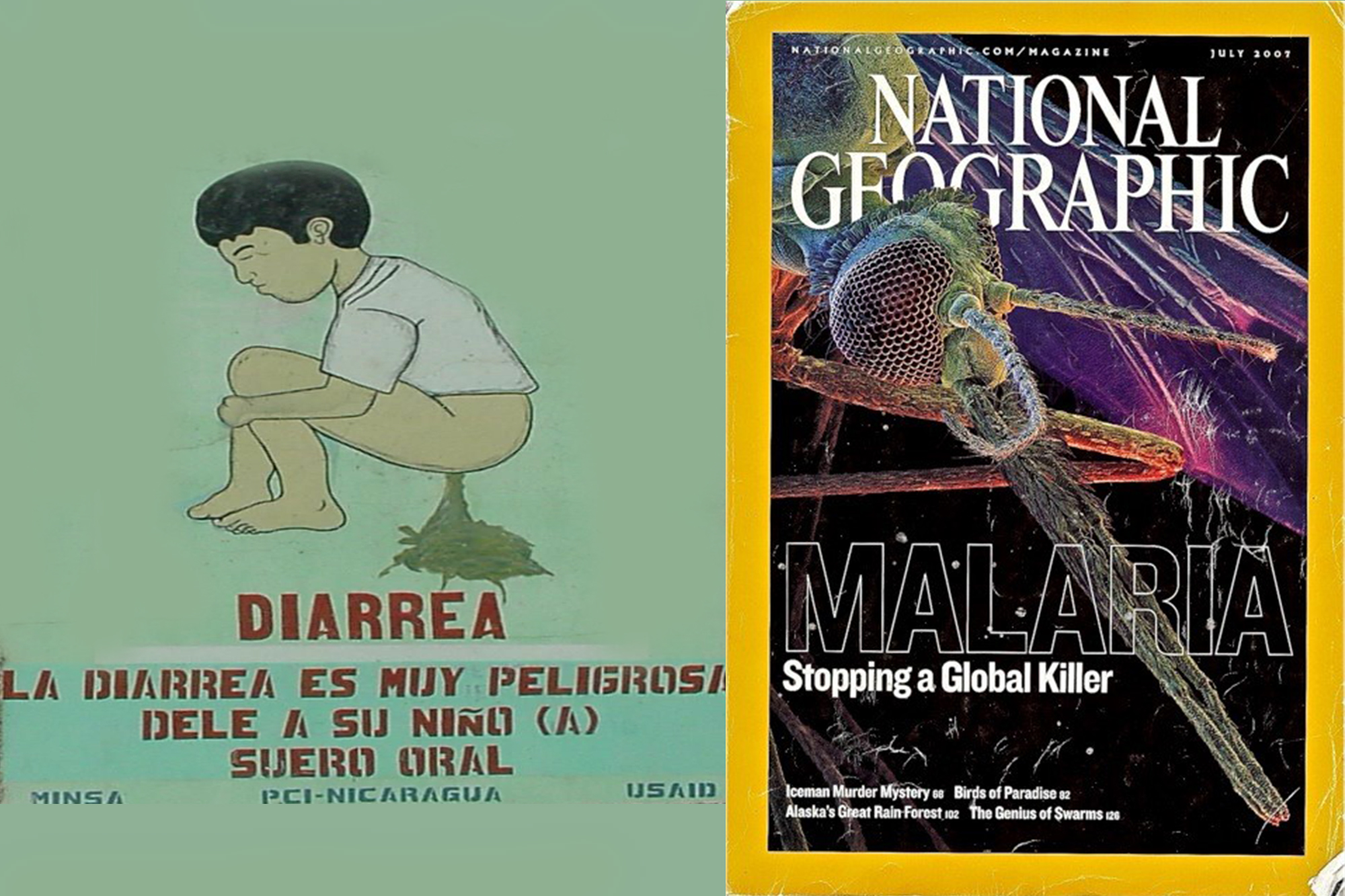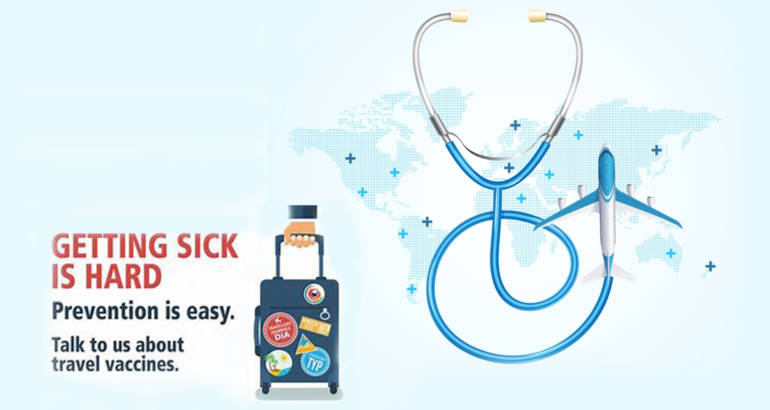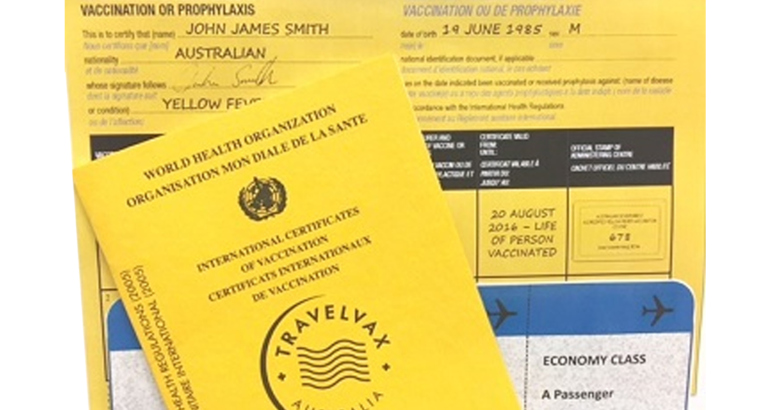Traveler’s Diarrhea
What causes Traveler’s diarrhea?
Traveler’s diarrhea (TD) is caused by infectious agents such as bacteria, viruses, and protozoa. Incidence rates of this disease are equal for males and females. In short-term travelers, bouts of TD do not appear to protect against future attacks, and >1 episode of TD may occur during a single trip
What are the symptoms of Traveler’s diarrhea?
Traveler’s diarrhea may begin abruptly during your trip or shortly after you return home. Most people improve within 1 to 2 days without treatment and recover completely within a week. However, you can have multiple episodes of traveler’s diarrhea during one trip.
The most common signs and symptoms of traveler’s diarrhea are:
- Abrupt onset of passage of three or more looser watery stools a day
- An urgent need to defecate
- Abdominal cramps
- Nausea
- Vomiting
- Fever
Sometimes, people experience moderate to severe dehydration, persistent vomiting, a high fever, bloody stools, or severe pain in the abdomen or rectum. If you or your child experiences any of these signs or symptoms or if the diarrhea lasts longer than a few days, it’s time to see a doctor.
When to see a doctor?
If you experience traveler’s diarrhea, it typically resolves within a few days without treatment. However, if certain bacteria or parasites cause the condition, symptoms may be more severe and last longer. In such cases, medical intervention may be necessary. As an adult, you should seek medical attention if your diarrhea persists for over two days, you become dehydrated, experience severe abdominal or rectal pain, have bloody or black stools, or have a fever above 102 F (39 C).
If you’re traveling to another country and need to find a good doctor who can speak your language, try getting help from your local embassy or consulate. You should be extra careful when traveling with kids because they can get dehydrated if they get traveler’s diarrhea. If your child gets sick and you see any of these signs, you should call a doctor right away: throwing up a lot, having a fever of 102 F (39 C) or higher, having bloody or very loose stools, having a dry mouth or not crying tears, being very tired or not responding well, or not peeing as much as usual (including having fewer wet diapers for babies).
Prevention of Traveler’s diarrhea
Food & Water Precautions
1. Select food carefully: When eating raw food, there is a risk of contamination, so it’s important to be careful. Pathogens that can cause illness can be found in raw or undercooked meat, fish, and shellfish. If you’re in an area where hygiene and sanitation are unknown or inadequate, it’s best to avoid eating salads, uncooked vegetables, raw, unpeeled fruits, and unpasteurized fruit juices. If you have to eat fruit that can be peeled, peel it yourself. Before preparing produce, rinse it with safe water.
Animal products, such as meat and eggs, should be cooked thoroughly, and milk and milk products should be pasteurized, including milk used in soft cheese. When eating out, it’s important to be aware that some restaurants may have inadequate refrigeration and staff who haven’t been trained in food safety, which can spread pathogens. Eating fully cooked, hot foods or foods you’ve prepared yourself carefully is best.
It’s also important to be cautious when buying food and drinks from street vendors because it’s been associated with a higher risk of getting sick. Following the abovementioned precautions can lower your risk of getting a foodborne illness.
2. Wash Hands: To stay healthy while traveling, make sure to wash your hands often. Use soap and water before eating, handling food, using the restroom, changing diapers, caring for someone sick, or after contact with animals or their surroundings. If soap and water are unavailable, use an alcohol-based hand sanitizer with at least 60% alcohol. But remember, hand sanitizer won’t work against Cryptosporidium or norovirus and should never be used on visibly dirty or greasy hands. In those situations, wash your hands with soap and water immediately.
3. Infant Formula: To keep infants under 6 months safe, exclusive breastfeeding is recommended. However, if the formula is used, it should be made from commercially available powder mixed with hot water that’s been heated to at least 158°F (70°C). This is important to eliminate pathogens that may have contaminated the formula during manufacturing or handling.
To ensure the water is hot enough, prepare the formula within 30 minutes of boiling the water. Then, cool the formula by placing the bottle in a bath of safe water and ice until it’s at a safe temperature for feeding. The prepared formula should be used within 2 hours, and bottles and nipples should be cleaned and sterilized by boiling or using an electric sterilizer. It’s a good idea for travelers to bring enough formula for their trip because manufacturing standards vary widely worldwide.
4. Drinking Water: When traveling, it’s best to avoid drinking tap water unless it’s safe. To ensure safety, many people disinfect or filter their water when visiting places without safe tap water. It’s important to note that even if tap water is safe to drink, it’s not sterile and should not be used for sinus or nasal irrigation, rinsing, or ritual purposes without further disinfecting it.
Tap water should never be used to clean or rinse contact lenses. Cloudy or colored water may contain harmful chemicals that boiling or disinfection cannot eliminate. In those cases, travelers should use bottled water if available. In areas with unsafe tap water, only commercially bottled water from an unopened, factory-sealed container or water that’s been adequately disinfected should be used for drinking, preparing food and beverages, making ice, cooking, and brushing teeth.
5. Other Beverages: For a safe drink option, drink tea or coffee with freshly boiled water. Sealed cans or bottles of drinks like soda, juice, water, and pasteurized drinks are also safe to consume. Just be sure to clean the outside of the container before opening it to avoid contamination. Avoid fountain drinks and iced drinks made with tap water as the ice may not be safe. If you’re traveling to an area with questionable water quality, it’s best to ask for drinks without ice to be safe.
6. Recreational Water: Some illnesses can be contracted from recreational water that is contaminated by pathogens. These can affect the gastrointestinal, respiratory, skin, ear, eye, and nervous systems. Contamination can occur in swimming pools, water playgrounds (like splash pads or spray parks), hot tubs/spas, freshwater, and marine water that haven’t been treated properly. Even if the water looks clear, it may contain harmful agents from sewage, animal waste, or wastewater runoff. Swallowing even a small amount of this water can cause illness.
To avoid getting sick from recreational water, travelers can check the water’s pH and free available chlorine concentration before using it. The CDC recommends a pH range of 7.2–7.8 and a free available chlorine concentration of 2–4 ppm in hot tubs/spas (4–6 ppm if bromine is used) and 1–3 ppm in pools and water playgrounds. Test strips can be bought at most superstores, hardware stores, and pool supply stores. Pseudomonas can cause “hot tub rash” or “swimmer’s ear,” while Legionella can spread in hot tubs and spas that don’t have enough chlorine or bromine.
Travelers should avoid swimming in pools, water playgrounds, and hot tubs/spas where cloudy water or bather limits are not enforced. Additional guidance can be found at www.cdc.gov/healthywater/swimming.
When traveling, it’s important to be careful when swimming or wading in certain types of water. You should avoid areas near storm drains, water contaminated with sewage, human or animal feces, or wastewater runoff, and lakes or rivers after heavy rainfall. It’s also best to avoid freshwater streams, canals, and lakes in areas of the Caribbean, South America, Africa, and Asia where schistosomiasis is prevalent. Additionally, you should avoid water that may be contaminated with urine from animals infected with Leptospira, as well as warm seawater or brackish water (a mixture of fresh and seawater) if you have any wounds.
If you have an open wound, it’s best to stay out of the water or cover it with a water-repellent bandage labeled “waterproof.” Seawater and brackish water can contain germs such as Vibrio spp. that can cause wound infections. If a sore or open wound does come into contact with untreated recreational water, it should be washed thoroughly with soap and water to reduce the chance of infection.
Naegleria Fowleri is a parasite found in warm freshwater around the world. To avoid a rare but fatal infection caused by this parasite, travelers should either hold their nose shut or wear a nose clip when swimming, diving, or engaging in similar activities in warm freshwater, including lakes, rivers, ponds, hot springs, or locations with water warmed by discharge from power plants and industrial complexes. It’s also important to avoid digging in or stirring up sediment, especially in warm water. This infection has also been linked to the use of contaminated tap water for sinus and nasal irrigation.
Travelers’ diarrhea severity
Mild (acute): tolerable diarrhea that is not distressing and does not interfere with planned activities.
Moderate (acute): diarrhea that is distressing or interferes with planned activities.
Severe (acute): diarrhea that incapacitates or completely prevents planned activities; all dysentery is considered severe.
Treatment of mild travelers’ diarrhea
- Antibiotics are not advisable for patients experiencing mild traveler’s diarrhea.
- Instead, using Loperamide or BSS can be considered a treatment option for this condition.
Treatment of moderate travelers’ diarrhea
- If you have moderate traveler’s diarrhea, a few antibiotics can be used to treat it. Again consult a doctor before taking any antibiotic medicine.
- Fluoroquinolones and azithromycin are two options to consider. For noninvasive cases of moderate travelers’ diarrhea, Rifaximin may be used instead.
- Loperamide can also be taken as an additional treatment for moderate to severe cases of travelers’ diarrhea. However, it’s important to remember that loperamide should not be taken alone for patients experiencing bloody diarrhea or those with diarrhea and fever.
- Sometimes, loperamide may be taken alone for moderate travelers’ diarrhea.
Treatment of severe travelers’ diarrhea
- If you have severe traveler’s diarrhea, you should take antibiotics to treat it. The best medicine for this is Azithromycin.
- You can also use fluoroquinolones and rifaximin for severe travelers’ diarrhea that is not dysentery.
- You can take just one dose of antibiotics to treat travelers’ diarrhea if you prefer.
Treatment for Children
When children accompany their parents to high-risk destinations, they may contract TD. The risk is even higher if they visit friends and family. The bacteria that cause TD in adults and viruses like norovirus and rotavirus are the most common culprits. The primary treatment for TD in children is ORS. Infants and younger children with TD are more susceptible to dehydration, which can be prevented by starting oral rehydration early.
If there is bloody or severe watery diarrhea or evidence of systemic infection, empiric antibiotic therapy should be considered. For older children and teenagers, TD treatment recommendations are similar to those for adults, with possible adjustments in medication dosage. Macrolides like azithromycin are the preferred first-line antibiotic therapy for younger children.
What other Travel vaccines and services do you provide?
Common travel vaccines administered by travel clinics for international travel can vary depending on the destination and individual health factors. However, here are some of the common travel vaccines that are often recommended or required for certain destinations. When it comes to vaccinations, there are several types that you should consider before traveling.
Routine vaccines, such as those for Measles, Mumps, Rubella (MMR), Tetanus, Diphtheria, and Pertussis (TDAP), as well as the annual influenza vaccine, are important for maintaining your overall health and are not specific to travel.
However, if you’re planning to travel to regions with poor sanitation and hygiene, you should consider getting the Hepatitis A vaccine. This vaccine protects against a virus that is often contracted through contaminated food and water.
Similarly, if you’re planning to engage in activities with potential exposure to blood or bodily fluids, you may want to get the Hepatitis B vaccine, which protects against a virus that is transmitted through contact with infected blood, sexual contact, or contaminated needles.
The Typhoid vaccine is recommended for travelers to regions with poor sanitation, and if you’re planning to travel to certain countries in sub-Saharan Africa or tropical South America, you may need the yellow fever vaccine.
Rabies is another vaccine to consider if you’ll be spending time in rural or remote areas where medical care might be limited.
Depending on your destination, the Meningococcal disease vaccine might be recommended, and the Japanese Encephalitis vaccine is a good idea if you’ll be spending extended periods of time in rural agricultural areas or areas with rice fields.
Finally, while the Cholera vaccine is not usually required, it may be recommended for travelers to regions where cholera is prevalent, and some countries still have ongoing polio transmission, so you may need a booster dose of the polio vaccine.
It’s important to note that recommendations can change, and some vaccines might be required to enter certain countries. The traveler’s age, health status, and specific itinerary can also influence the recommendations. It’s advisable to consult a travel medicine specialist or a travel clinic well before your trip to receive personalized advice based on your destination and individual health considerations.
You can look at all our vaccines and prices on this page. You can also book an appointment on the same page.
Is my travel vaccine covered through insurance?
We can bill the routine vaccines needed for travel through insurance. Some of the vaccines, like Rabies, etc, are cash-pay-only vaccines as travel is considered leisure and often not covered by insurance.
What is the price for the Travel services you offer?
You can book an appointment online and check the prices using this page.




